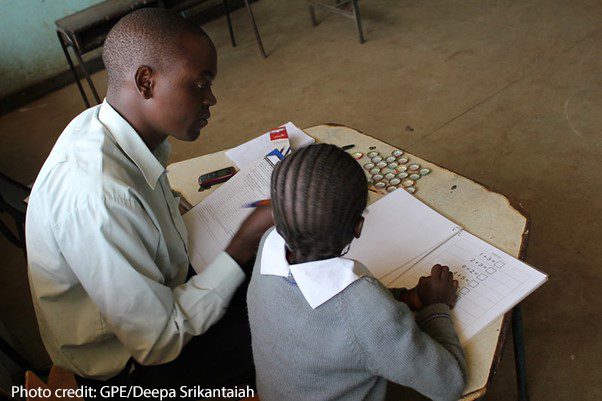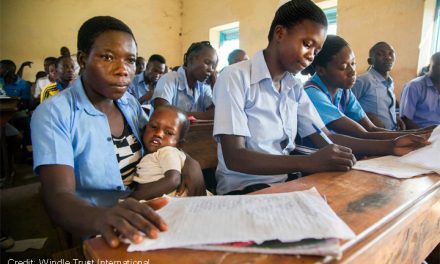This blog was written by Dr Yifei Yan, Lecturer in Public Administration and Public Policy, Department of Politics and International Relations, University of Southampton, UK.
Last month, Ms. Ruth Perry, a headteacher in Reading, England, took her own life after her school was rated “inadequate” in the latest round of inspection conducted by the Office for Standards in Education, Children’s Services and Skills—better known as its acronym Ofsted. Before this shocking tragedy, many surveys already noted an alarming number of teachers in England suffering substantial accountability-related stress, to the extent that many were considering quitting the profession.
This sorry state is not exclusive to England, as the same kind of stress and demoralisation was reported across the globe both before and during the trying times of the COVID-19 pandemic. To rectify what has become a global fault line of school accountability, a fundamental rethinking is urgently needed regarding the purposes of accountability in school education and the appropriate means to achieving them.
The unbearable burden of being the “ultimate accountors”
The term “accountability” is typically used to depict a relationship between “accountors” and “accountees” that involves the delivery of certain types of information (or “account”), to which feedback is given in return. Beyond this basic definition, accountability relationships can take various forms depending on who is accountable to whom and for what—a landscape that can also change over time.
For long, it was primarily about the hierarchical relationship between lower and higher levels of bureaucracies over inputs and regulation compliance. In the background, bureaucratic accountability was expected to be supported by political or democratic accountability. Popularised by New Public Management (NPM) reforms since 1990s, a pervasive emphasis on performance, outcome and business-like efficiency started to engender a proliferation of relationships beyond the hierarchical one.
Despite that, government schools and their teachers remain what can be termed as “the ultimate accountors”. While still being held accountable for inputs and standards by government agencies, these “ultimate accountors” in this new accountability landscape are further accountable “up” to the same agencies for the quality of education as intensively measured by standardised assessments both nationally and internationally. They are also held accountable “out” to external stakeholders, such as parents whom they are now supposed to serve as “consumers of education services”. The introduction of private schools is simply another accountability-strengthening mechanism, as it is believed to exert performance pressure through choice and competition.
Why accountability measures need to go beyond command-and-control
When the weight of this rapidly expanding web of accountability arrangements falls disproportionately on a single group of accountors, it shouldn’t be surprising that the group also tends to feel overwhelmingly stressed and demotivated. But is this situation really conducive to fulfilling the purposes of accountability in education?
Earlier research summarised three core purposes of accountability – as control (for the abuse and misuse of public authority), assurance (that public resources are used according to the law and public service values) and constant improvement (in governance and public management). At first glance, all three seem to be embraced in the school education sector. For example, Ofsted made clear in its 2017-2022 strategy that it envisions to be “a force for improvement through intelligent, responsible, and focused inspection and regulation”—a vision more succinctly summarised as “raising standards [for] improving lives” in its official logo.
Upon further scrutiny, however, a mismatch between ends and means can be detected. Command-and-control approaches such as monitoring and inspections may be apt for control and assurance purposes. Yet, expecting the exclusive use of these measures to accomplish the goal of systemic improvement will be far stretched at best, without simultaneously and continuously boosting the morale of key frontline workers and enhancing their professional capacity for tasks related to schooling, and more importantly, student learning.
Notwithstanding the increasing recognition of the need for having empowered and motivated teachers and school leaders, questions remain as for how to put such well-meaning commitments into practice. A common measure tried in many education systems in both the Global North and South is financial incentives in the format of performance pay. Much like the findings about other popular accountability mechanisms like school-based management or school choice, the results of performance pay programmes had a similarly mixed record, in which positive effects were sometimes shadowed by the deviation of teacher efforts into “teaching to the test” or inflating student grades.
Professional development-related support, such as teacher in-service training, career progression and other recognition measures, in contrast, is much less explored in accountability-related research. A closer dialogue between scholars and practitioners on teacher professional development and those on school accountability is thus likely to be a much-needed first step to inform policymaking that can relieve the unbearable burdens on the ultimate accountors and invite their contributions towards systemic improvement in a more empathetic and sustainable manner. To the extent that accountability-induced stress has become a global concern, seeking lessons and inspirations from other education systems may be useful too. But if my research on teacher capacity building in India and China is anything to go by, such efforts will hardly be successful without actively listening to the voices of their intended recipients first.






very interesting and timely published